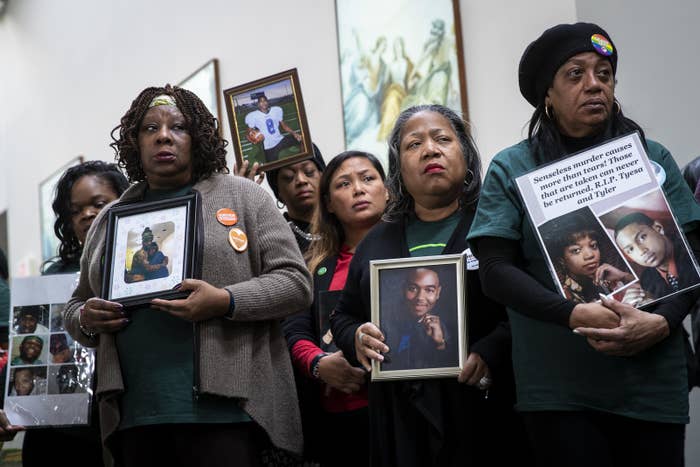
WASHINGTON — The House of Representatives passed two bills this week that would vastly expand background checks, but they will likely be blocked by the Republican-controlled Senate and President Trump.
On Wednesday the House voted 240-190 to require background checks for private gun sales, with eight Republicans joining most Democrats to support it.
Before the vote, Republicans proposed an amendment to the bill to require Immigration and Customs Enforcement officials be notified any time an undocumented immigrant attempted to purchase a firearm. Typically, last-minute amendments from the minority party are voted down, but 26 Democratic members voted with Republicans to pass the amendment.
It was a rare and embarrassing loss for the Democratic majority and appeared to be unexpected, as party leaders huddled over what to do next. The party ended up voting for the bill to pass it despite the amendment.
On Thursday the House voted 228-198 to close the so-called Charleston loophole that allows a gun sale to go through if a background check is not completed within three days. Three Republicans voted with Democrats. Taken together, these two pieces of legislation would be the most significant gun control reforms in many years.
But the bills are expected to stall in the Senate. Senate Judiciary Committee chair Lindsey Graham has already said he will not hold hearings on the background check legislation. President Trump has also said he would veto the bills because they impose unreasonable requirements on gun owners.
There have been several attempts to take up gun control in Congress in recent years as a string of shootings across the country, at schools, churches, and concerts, focused public attention on the issue. Congress ultimately did not pass any new gun restrictions, but in 2018 did pass a bill to improve data entry to the national background checks system.
The House bill passed Wednesday would expand mandatory background checks to nearly all gun sales. Currently, federally licensed firearm dealers must perform background checks on a customer before selling a firearm, but about one in five gun sales are exempt from background checks. These are private sales, online sales from nonlicensed dealers, and sales at gun shows through what’s known as the gun show loophole.
The bill would expand background check requirements to most private sales, though firearm transfers between immediate family members would still be exempt.
The bill to be voted on Thursday would give authorities more time to perform background checks. It is inspired by the 2015 Charleston, South Carolina, shooting where white supremacist Dylann Roof killed nine people inside a black Methodist church.
Roof had been arrested for possession of narcotics and should not have been able to purchase the .45-caliber handgun he used in the attack. But the background check system was rife with data problems and could not be immediately completed. After three days, the background check remained incomplete and the dealer transferred the gun to Roof, as is legally allowed.
Federal laws still allow firearm dealers to adopt this “default proceed” policy, whereby the sale goes through if the background check is not completed within three days.
FBI data show that in 2017, 1 in 10 background checks were hit with a delay. There were 6,000 cases where investigators realized only after the three-day window that the buyer should have been rejected from purchasing a firearm. This includes over 1,000 successful gun sales to people convicted of domestic violence offenses, 500 gun sales to people who were fugitives, and 120 gun sales to people currently under a restraining order for domestic violence.
While Graham is so far refusing to pick up either bill at the Senate Judiciary Committee, he has said the committee will study “red flag” laws that allow law enforcement to seize an individual’s guns if they are deemed to be an imminent threat. Several states have passed red flag laws in recent years.

